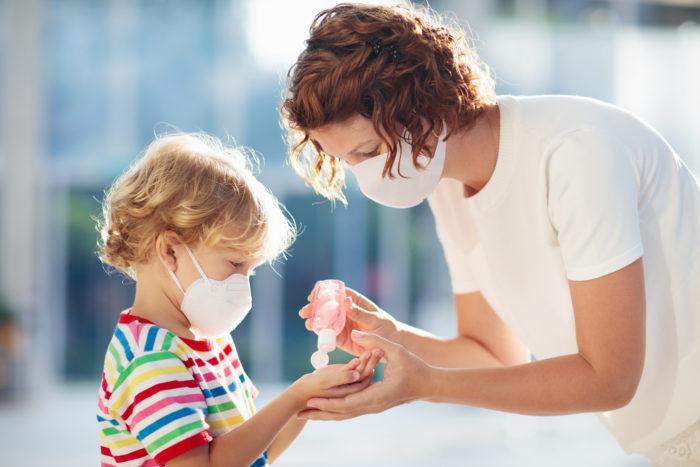A bottle of Purell sits on a table inside my front door. If I had guests, I would ask them to use it.

The only difference between my house and the countless others now washing, sanitizing and social distancing to ward off COVID-19 is that I first did all this 16 years ago. That’s when I brought my premature daughter, Becky, home from the neonatal intensive care unit.
I find myself thinking back on those days a lot recently. Today parents flinch at the sound of the slightest cough, they eye even the mail carrier as a potential carrier of germs, and repeatedly wash their hands until they sting with dryness. For some parents, this is all new. But I’ve been here before.
There’s the paranoia, the sense of helplessness, the thirst for information that can help protect your family. And, of course, the obsessive drive to keep every surface, every blanket, every door knob and light switch so clean that your child can’t get sick.
I empathize with these parents, and in many ways I am one of them yet again. My daughter is now a teenager but she, like many other preemies, carries lingering reminders of her prematurity. Becky has asthma, making her high-risk for the coronavirus. I worry for her safety.
I also think of parents who are in the NICU today with a premature baby. How much more intense, more terrifying must their anxiety be? They face the uncertainty, the powerlessness of prematurity compounded with the reality of a pandemic that’s quickly overtaking the country.
All parents, be they new or seasoned, parents of preemies or parents of term babies, could benefit from three things right now.
First, parents need clear and coherent information about what’s happening and what they can do. Mixed messages heighten parents’ insecurities and stir uncertainty about what’s fact, what’s hysteria and what’s political posturing. Straightforward advice about handwashing and social distancing has been helpful. Parents need more of where that came from.
Second, parents need health policies that allow families to get what they need. If your family has the misfortune to be struck with coronavirus, now is no time for red tape, insurance denials or surprise medical bills. Meanwhile, families should be able to access routine care without interruption, making it easier for people with critical needs to have the dedicated attention of first responders, hospital staff and health care providers.
Third, parents need good, old-fashioned kindness. I recall arriving at the NICU one morning, 16 years ago, to find my Becky napping in her hospital crib with a white crocheted blanket on her chest. A woman from a local church group, someone I’d never even met, had handmade and delivered blankets for the NICU babies. The sight of my tiny daughter, wrapped in the warmth of a stranger’s kindness, brought me to tears.
None of us can control coronavirus. But we can offer a smile, a text, a prayer, a wave – an encouraging word. We can follow the guidance from the CDC. We can get through this together.

Deb Discenza is the CEO of PreemieWorld and the co-author of The Preemie Parent’s Survival Guide to the NICU.

